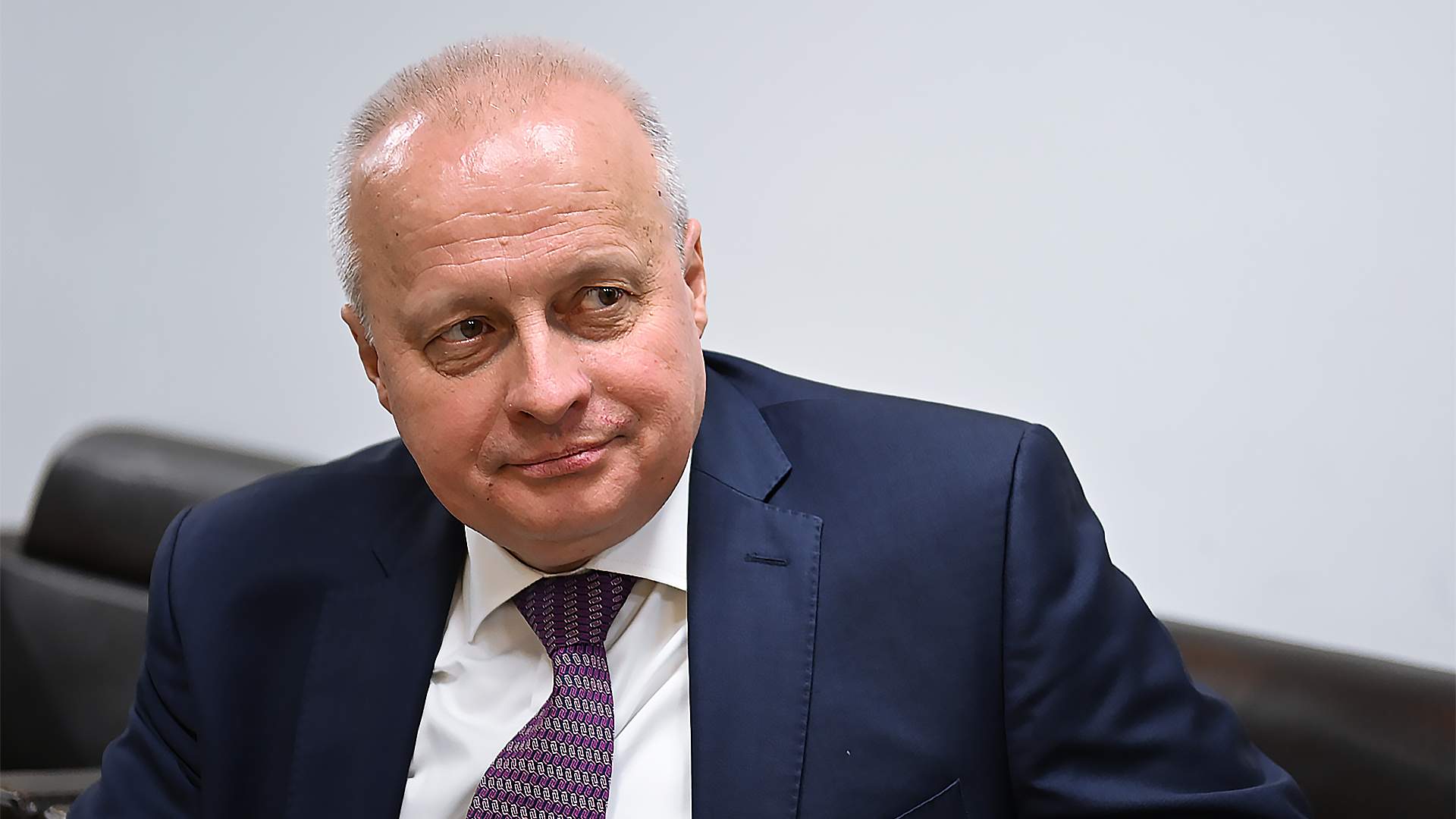"Russia is committed to Armenia's security obligations"

Russia expects Armenia to join joint efforts to develop a system of equal and indivisible security in Eurasia, Russian Ambassador to Yerevan Sergey Kopyrkin told Izvestia. According to him, there are no real alternatives to the Russian-Armenian allied interaction, including within the CSTO framework. At the same time, Moscow is interested in a lasting peace between Armenia and Azerbaijan as soon as possible, the diplomat emphasized. The prospects for a settlement between Yerevan and Baku, the dynamics of Russia's trade with Armenia and the country's interest in BRICS are discussed in an exclusive interview with Sergey Kopyrkin.
"The entireSouth Caucasus feels the gravity of BRICS"
- Astana will host a session of the CSTO Collective Security Council on November 28. It is known that Russian Foreign Minister Sergei Lavrov will attend a joint meeting of the councils of the Foreign and Defense Ministries and the Committee of Secretaries of the CSTO Security Councils in the Kazakh capital on the same day. It remains unclear whether Armenia, which has frozen its work in the organization, will take part in the event. What are the prospects of resuming the country's full-fledged activity in the CSTO, and has the freeze affected the dynamics of the development of relations between Moscow and Yerevan?
- Speaking about Armenia's security issues, we take the position that there are no comparable real alternatives to the Russian-Armenian allied cooperation, including within the CSTO framework. Russia remains committed to its obligations to ensure Armenia's security both bilaterally and through the CSTO.
We also count on the active involvement of our Armenian partners in the joint efforts to develop a system of equal and indivisible security on the Eurasian continent, the idea of which was put forward by Russian President Vladimir Putin on June 14 this year at a meeting with the leadership of the Russian Foreign Ministry and reiterated during the recent BRICS summit in Kazan.
- Armenian Prime Minister Nikol Pashinyan traveled to Kazan for the BRICS leaders' summit. Do you see a change in Yerevan's position towards the unification after the head of the government's trip to the summit?
- Too little time has passed to judge about any new developments in the position of official Yerevan towards the BRICS activities after the summit in Kazan. We realize that our Armenian friends need time to take a closer look at the activities of this interstate club. Objectively, the presence of Armenia's most important partners in the BRICS family - in addition to Russia, Iran, India, China and the UAE - undoubtedly increases the attractiveness of this platform for Yerevan. Azerbaijan and Turkey have also indicated their intention to join it. This allows us to say that the entire South Caucasus feels the gravity of BRICS.
"The trade turnover between Russia and Armenia has exceeded $8.3 billion"
- Russia and Armenia are linked by strong economic relations. What are the dynamics of trade turnover between the countries in 2024?
- Talking about the Russian-Armenian trade and economic relations, we should start with the fact that cooperation on the platform of the Eurasian Economic Union is to a large extent the catalyst of their dynamic development. The impressive figures of our mutual trade would be simply impossible without the effective efforts of the EAEU bodies to eliminate trade and administrative barriers, to ensure the transition of the member states to common technical, sanitary, veterinary and phytosanitary standards, to build a clear coordination between the competent state agencies of the countries of the Eurasian economic space. The same factors favored Russia's emergence as one of the leading investors in Armenia's economy. About $4 billion - this is the total level of accumulated Russian investments.
Speaking about specific figures, in the first half of 2024, the trade turnover between Russia and Armenia exceeded $8.3 billion, surpassing last year's figures of $7.4 billion. We expect to maintain the momentum and reach a record $14-16 billion. We are also working on launching joint economic projects in Armenia, which will make a tangible contribution to the development of Armenian industry, create new jobs and increase tax revenues to the budget.
"Reaching compromises between Yerevan and Baku is a difficult and time-consuming process"
- In early November, Vladimir Putin said at a credentials ceremony in the Kremlin that Moscow was doing everything to normalize Armenian-Azerbaijani relations and conclude a peace treaty between Yerevan and Baku. Do you think there are any chances for its signing this year?
-As a rule, the preparation of any peace treaty is a painstaking and very responsible process. Of course, Moscow is interested in a lasting peace between Armenia and Azerbaijan as soon as possible. At the same time, it is important that this crucial document for the region be based on a fair settlement of all mutual concerns, without a "bitter aftertaste" for either side.
- But Russia is still ready to help Armenia and Azerbaijan conclude a peace agreement?
- We can clearly see that reaching mutually acceptable compromises between Yerevan and Baku is a difficult and time-consuming process, given the previous developments since the collapse of the USSR. Russia is invariably ready to provide our Armenian and Azerbaijani partners with assistance in the settlement of bilateral relations, following the spirit and letter of the set of trilateral agreements of the leaders of Russia, Armenia and Azerbaijan in 2020-2022. It is up to the negotiating parties to choose the forms and volumes of such assistance. In this regard, we are glad that productive high-level contacts between Armenia and Azerbaijan took place on the platform of the BRICS summit in Kazan on October 24, which allowed to give a useful impetus to the dialogue on the normalization of relations.
Переведено сервисом «Яндекс Переводчик»



